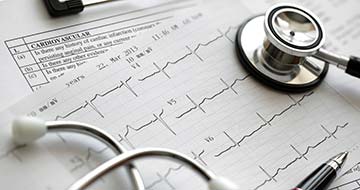Services
The first step in your care process is to understand the nature of your disease so that we can diagnose your condition.
Cardiac Electrophysiology, is the study of the electrical activities of the heart, specifically for the purposes of diag...
When our patients present with problems that may be cardiovascular in nature, we help determine the most likely diagnosi...
We help our patients improve blood flow in their arteries and veins by using very small tubes and specialized tools to d...
When the heart is functioning normally, the arteries are clear and open to allow for easy passage of blood through and o...
The highly trained surgeons and specialists at Biltmore diagnose and treat structural heart disease. We understand the n...
Dementia and Heart Disease Can Be Related
Health conditions in midlife can have a meaningful effect on dementia in older age. Such health conditions are also heart disease risk factors. The good news is that when you know what to watch for, you can make lifestyle and/or medication decisions to decrease your risk of both dementia and heart disease. A 2017 study found a greater chance of developing dementia in men and women with:
- Vascular problems
- Diabetes
- High blood pressure
- Prehypertension (higher blood pressure than normal, but lower than hypertension)
- Cigarette smoking especially with Caucasians
The findings of the study were relevant whether or not a person had a history of stroke. Information comes from a 25-year John Hopkins University study with nearly 16,000 participants. Results were published in the online Journal of the American Medical Association Neurology in August 2017.
Reduce risk for heart disease by paying attention to Life’s Simple 7® from the American Heart Association:
- Manage blood pressure
- Reduce blood sugar
- Control cholesterol
- Eat better
- Get exercise
- Stop smoking
- Manage weight
It’s never too early or too late to get on the path to #HeartHealth!







